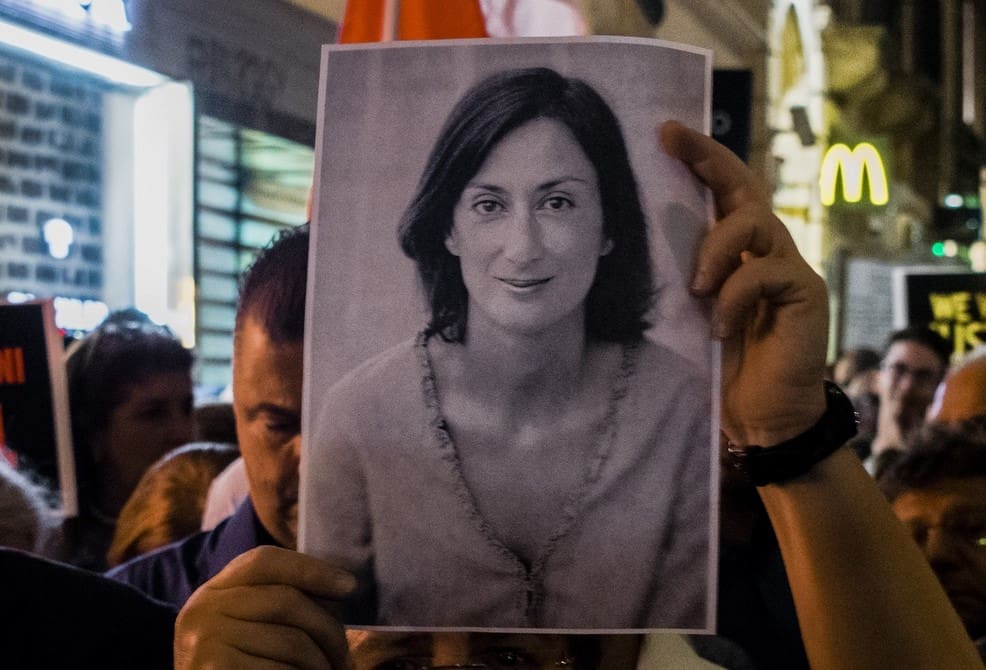Last week, two brothers, George Degiorgio, 59, and Alfred Degiorgio, 57, charged with the car-bomb assassination of the Maltese journalist and blogger Daphne Caruana Galizia in October 2017 have been sentenced to a 40-year prison term. They pleaded guilty to her murder on the first day of their trial. Caruana Galizia, the “one-woman Wikileaks” had investigated political corruption in Malta and abroad. She was known as a harsh critic of the Maltese government.
Ther accomplice Vincent Muscat has also pleaded guilty to the crime and has been sentenced to 15 years in prison in February 2021, meaning three of the seven men so far accused of conspiring to commit the murder have now been convicted.
The Masterminds
Prosecutors alleged they were hired to carry out a contract killing, paid for by the Maltese businessman Yorgen Fenech, who has been charged and will be tried separately. Fenech claims to be innocent. His main business interests are casinos and hotels in Malta. He was head of the Tumas Group and director of the Maltese-Azerbaijan-German company ElectroGas Malta. He was the owner of the Dubai-registered company 17 Black, a company listed in the Panama Papers. Caruana Galizia had written about 17 Black alleging the company had links to the then Prime Minister Joseph Muscat‘s chief of staff, Keith Schembri.
In a court statement, Fenech accused Keith Schembri of being the mastermind behind the assassination. Schembri was arrested on charges of corruption, fraud, and money laundering but later released on police bail.
The assassination of Caruana Caruana Galizia effectively triggered an early election by publishing allegations linking Joseph Muscat, the then-prime minister of the Labour Party. On 1 December 2019, under pressure from unprecedented street protests calling for his resignation, Muscat announced his resignation and stepped down on 13 January 2020.
The Investigative Fighter
Daphne Caruana Galizia was a regular columnist with The Sunday Times of Malta and later The Malta Independent. On her blog she published investigative reports and comments about government corruption, money laundering, and the links between Malta’s online gambling industry and organized crime. Some of the reports were regarded as personal attacks on individuals, leading to a series of legal battles. At the time of her death, Caruana Galizia was facing 48 libel suits.
